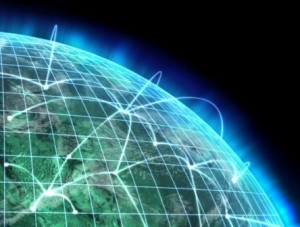I’m Shocked
 The 9.0 earthquake that devastated northern Japan continues to have severe aftershocks. They are shocks in what clever physicist would ascribe to a type of space-time. It’s not about Star Trek stuff, or the time travel that fantasies love to use, but rather how one type of event starts a whole series of other events along a different type of path, affecting a different space at a different time, but connected. These types of other events are very real “butterfly effects” where a small change in one place can cause a whole bunch of changes downstream. Believe it or not, that earthquake has changed our lives, our businesses, and our collective futures. Toyota, the world’s largest automaker is expecting a 35% drop in profits, primarily from supply chain disruptions. Maybe that’s a no brainer, but it’s also driving severe supply chain effects globally and very real adverse economic and employment pain here in the US. From automakers and their suppliers, to many of the stuff we buy including our beloved electro-gadgetry … it’s still hurting.
The 9.0 earthquake that devastated northern Japan continues to have severe aftershocks. They are shocks in what clever physicist would ascribe to a type of space-time. It’s not about Star Trek stuff, or the time travel that fantasies love to use, but rather how one type of event starts a whole series of other events along a different type of path, affecting a different space at a different time, but connected. These types of other events are very real “butterfly effects” where a small change in one place can cause a whole bunch of changes downstream. Believe it or not, that earthquake has changed our lives, our businesses, and our collective futures. Toyota, the world’s largest automaker is expecting a 35% drop in profits, primarily from supply chain disruptions. Maybe that’s a no brainer, but it’s also driving severe supply chain effects globally and very real adverse economic and employment pain here in the US. From automakers and their suppliers, to many of the stuff we buy including our beloved electro-gadgetry … it’s still hurting.
How many of our business plans had “the earthquake” included as a scenario? Not very likely … Our nuclear industry was in the early days of a beautiful renaissance, one with a promise that would be a large driver of untethering us from our OPEC masters … but it too has been severely damaged by an aftershock … but one with no Richter scale. Disruptive events aren’t what they used to be. Historically, disruptive events were contained to the extent of our technological and logistical isolation …. We weren’t all networked. Globalization has changed that … we’re one big interdependent and interconnected family. The apparent and marketed successes of globalized supply chains and very sensitive “just in time” systems had a big Black Swan lurking … behind our chosen lines of sight.
Today, complexity has become a global behemoth, creating new rules of business and generating many more choices and opportunities for innovation and value creation. I certainly love my Android phone more than the beeper I had 30 years ago. For businesses, that complexity requires a severe filtering of what is included in planning and consequently what we chose to be blind to. Planning in business love the optimists and sometimes ostracize the pessimists … the ones who ask the unnerving questions.
Given Japan’s location, how likely are earthquakes? I heard an unfortunate comment from a nuclear industry spokesperson … unfortunate because it is an industry I love and believe in … that “the damage at the Fukishima plant was not from earthquake damage … but rather from the tsunami, it performed as designed.” Aren’t earthquakes and tsunamis connected?
Today’s world is much less dominated by trends and easy predictions … how many surprises have we had to respond to in our enterprises? My bet is that we’ve had more of them more frequently … in some multiple of our increasing interconnected interdependency. Take a look back and count them … what would we have done if we had known or prepared ahead of time? As we look ahead and build our planning and business models for the coming year … are we asking the right questions? How many levels of “what if” along our interconnectivity are we exploring? Have the aftershocks created more timidity in decision making? How much time do we invest in complexity driven failure modes versus “win” and “capture” plans. Do our business continuity plans address the really scary stuff?
There is opportunity in every storm, after all, “Luck is when preparation meets opportunity.” Seneca, Roman philosopher, mid first century AD.

